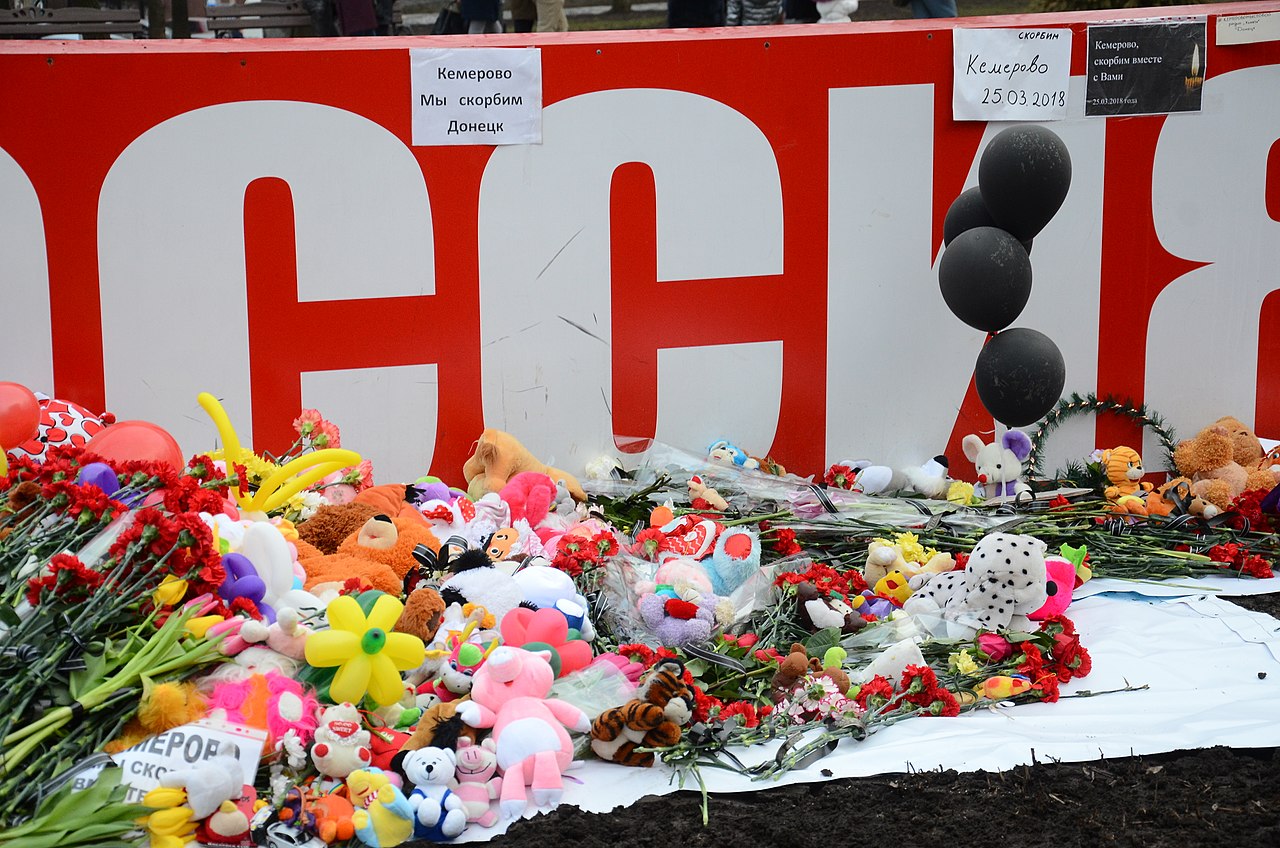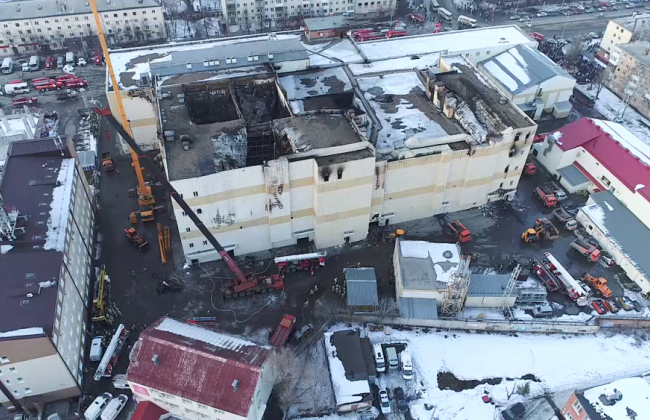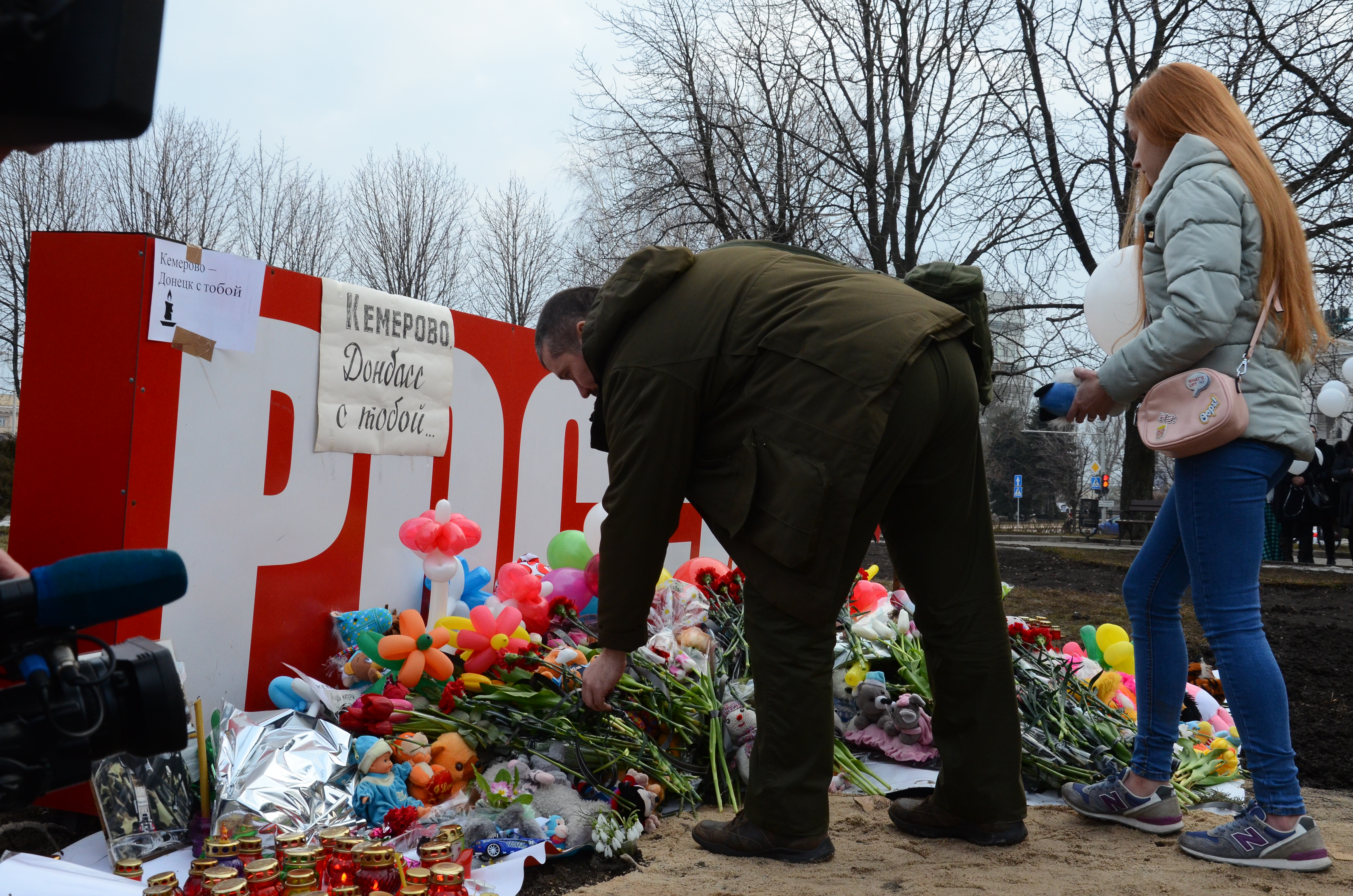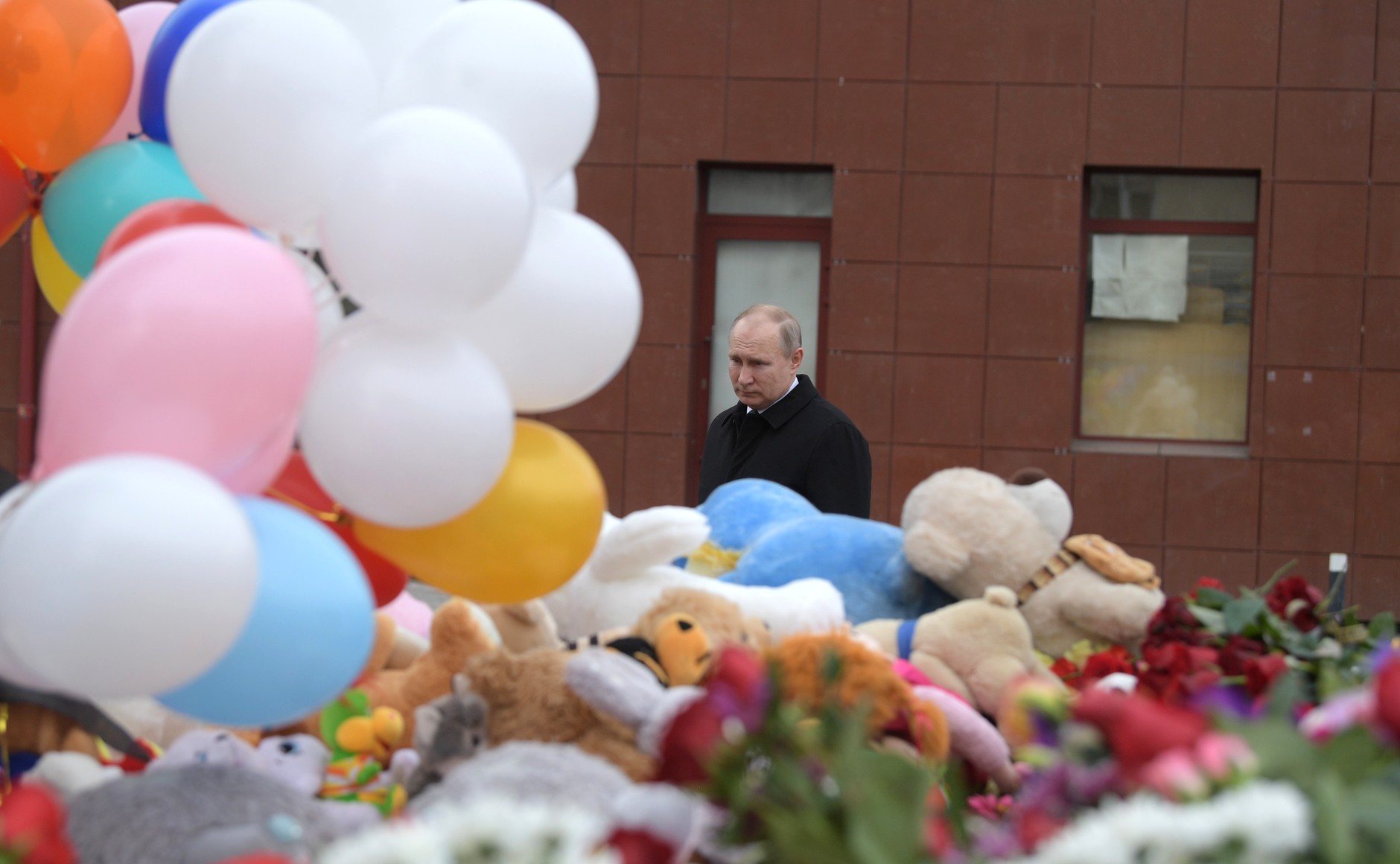Putin’ out the Kemerovo Fire

March 25th, 2018; Kemerovo, Russia. A fire at the Winter Cherry Complex saw many families broken, and from the ashes of the four-story building arose fiery rage over the government. The fire seems to be the only indisputable fact from the event, unlike the many other key details that have since emerged. Here are the facts.
The Inferno

The fire erupted at 17:00 local time on the 25th of March, a Sunday, at the mall’s child play area as well as its two cinema rooms on the fourth floor. The fire “erupted like gunpowder” and security footage shows deadly fumes and smoke filling up rooms within seconds. The most likely cause? Faulty electrical wiring combined with highly combustible materials. The building was previously declared unsafe, but its various red flags were never addressed. According to witnesses, the fire alarm did not go off as the fire spread. Both the fire exits and the entries to the cinema rooms were blocked and locked, trapping the visitors. The people inside the various entertainment rooms of the complex were unable to evacuate.
Watered-Down Responses
Soon after the fire, official reports on the death toll came in — 64 dead, including 40 children. Initially, the government responded with a public statement through a Kremlin spokesperson, who expressed Vladimir Putin’s “deep condolences to the relatives and loved ones of those who died.” Vladimir Chernov, the deputy governor of the Kemerovo Oblast voiced his guess on what might have caused of the fire — a child with a lighter. Putin himself remained silent on the issue during the first days following the tragic event, as did the acting governor of the Oblast.
State media provided a lukewarm response to the event, dedicating minimal airtime to information about the fire, the dead, or its reasons and consequences.
State authorities eventually launched a criminal investigation and arrested four workers, including the head of the fire alarm and inspection company as well as the technical director of the mall, under the suspicion of violations in emergency procedures and failure of safety examinations.
Fiery Public Outcry

The government’s and Oblast’s overall negligence and lack of accountability over the issue sparked a scathing response. The Russian people were quick to realize that corruption, both at the local and state level, had been the cause of not only this tragedy, but of the many preceding fires that had taken countless lives in Russia since the fall of the Soviet Union. The people started to recognize bribery and the sloppy safety procedures across the country as part of the built-in drawbacks to the regime that has been in power for the past 18 years. Opposition leader Alexei Navalny wrote that “the whole system of fire safety oversight has become a huge trough of corruption”. Even though displeasure from the Russian people had been previously contained, the lives of countless of children appeared to be the final straw.
Soon after news of the fire surfaced on the Internet, a vast wave of grief and anger flooded Russian social networks. Frustration over the state’s apparent lack of interest and sympathy overlapped with heartbreaking stories of kids calling their parents to say their last goodbyes from the shopping center inferno. Thousands of protesters took to the streets of Kemerovo holding banners and makeshift signs. The rally called for the sacking or the resignation of local officials, with some even calling for Putin to step down. The protesters reflected the increased distrust and fear over the consistent carelessness and neglect of the authorities.
Fury over the bigger picture of corruption was not the only theme of these rallies. Central to the exasperated atmosphere was also the suspicion over the tragedy’s official death toll. The citizens of Kemerovo argued that the shopping mall was a popular location for people of all ages. Seeing as the fire occurred on a busy Sunday during the screening of a popular children’s movie, the government’s death toll of 64 seemed too low. Many parents desperately came out stating that they had lost their entire families while entire classes of students were missing. The protesters demanded the truth.
Encircling the Government in Flames

Soon after the protests, anger heightened over alleged reports that Kemerovo governor, Aman Tuleyev told Putin that the protestors “are not relatives of the dead, but constant troublemakers”. On March 28th, three days after the deadly fire, the previously silent Putin made his way to Kemerovo. Was it out of heartfelt interest to help the mourning city, or was it due to the repeated cries for an appropriate government response? Whatever his motivation, the newly re-elected President was seen leaving flowers on a makeshift memorial for the dead and missing, and visiting a nearby hospital. However, nobody was allowed to approach the area around him. He proceeded to meet with members of a citizen group to talk about the tragedy, but he did not speak to the enraged protesters.
Putin told Kemerovo regional officials: “What’s happening here? This isn’t war, it’s not a spontaneous methane outburst. People came to relax, children. We’re talking about demography and losing so many people. Why? Because of some criminal negligence, because of slovenliness. How could this ever happen?” While these words seemed to mirror some of the questions of the protesters, it does not give any direct solutions to the bigger problem of corruption — which has deep connections to the Kremlin— or take any of the blame. As public pressure rose, Vladimir Putin declared the 28th of March a day of national mourning in remembrance of the victims.
Much like Putin’s response (or rather lack thereof), Tuleyev’s thoughts on the event reinforced public anger. The closest he came to taking any blame was his personal apology to Putin, rather than the relatives of the dead. The governor went on to further enrage the already distraught Russians by releasing a report claiming that the alleged higher death toll was a product of ‘fake news’ originating from a Youtube video published by a Ukrainian prankster, who was later arrested by the Russian court. This led to a hate-speech case against the supposed prankster, after assertions from the Russian state media that he (as a representative of the Ukrainian people), had aimed to increase internal tensions in Russia.
In another instance, Sergey Tsivilyev, a vice-governor for the oblast, vexed the public by blaming one of the protestors for using the tragedy to promote himself; the individual claims he lost his wife, children, and sister in the fire.
Burning Implications
This is not the first such incident to occur in Russia in the past decade. There have been more than five serious fires across Russia since the fall of the Soviet Union, in addition to many minor accidents. The response to each case is quite similar, with authorities promising to enact future check-ups and inspections to prevent similar accidents from happening in the future. As the events following this fire demonstrate, these promises are consistently broken with no tangible adjustments. Why did this tragedy, instead of the ones before it, cause such an uproar? The death of such a large number of children seems to be the tipping point. Putin’s initial unresponsiveness to the lives of these children, just weeks after his re-election, fired the people up.
The protests have achieved some minor success. Tuleyev, the governor of Kemerovo resigned after twenty years, due to the heated criticism from both his constituents and the people of Russia.
While the outcry against the fire has been very vocal, the effect this catastrophe has had on the government is revelatory. In the past, Putin has followed a pattern of avoiding or circling around public confrontation as a means of evading ruptures in his public image. The protests, however, pushed him off his chair in the Kremlin and brought him to Siberia to face the dead.
What could the consequences be after this shock coming from the united people of Russia? Will this lead to more strongly imposed authoritarianism, or could this mean the beginning Putin’s downfall? Could his government crash and burn, just like the Winter Cherry Complex?
Edited by Alec Regino
